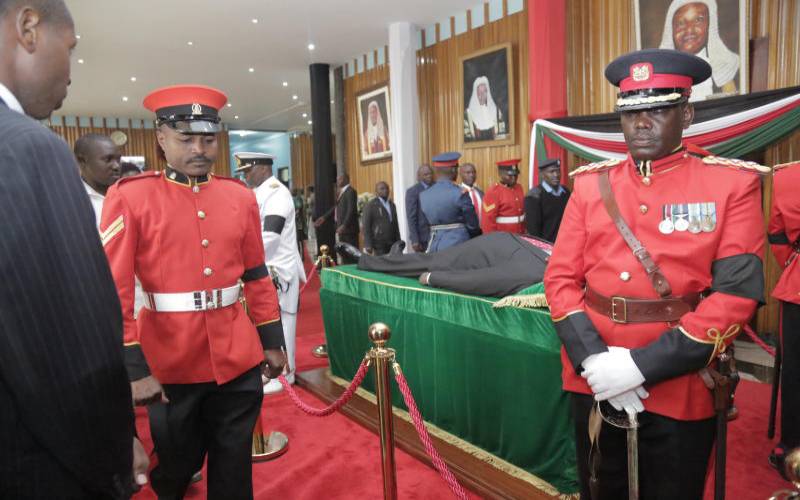×
The Standard e-Paper
Smart Minds Choose Us

Members of the Public viewing the former President Moi's body at Parliament building. [Standard, Edward Kiplimo
The handling of events after the death of former President Daniel arap Moi is steeped in military protocol. Ex-air force officer, now a security consultant, MWENDA MBIJIWE, explains why the fallen statesman is being accorded such treatment. Excerpts.